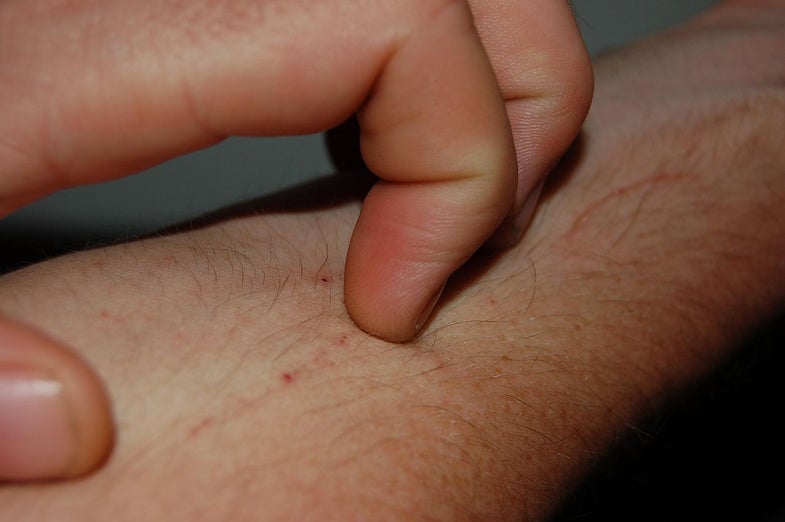Why Does A Fly Landing On Your Arm Make You Itch?
It's due to special receptors in your skin, and the discovery could lead to a cure to chronic itchiness

Lots of things can make you itch. Skin infections, allergic reactions, and even certain kinds of cancer can trigger the irritating sensation. Often, these itchy signals are more than just annoying–they can be a chemical warning that something is wrong with your body. In fact, the types and causes of itchiness can be so complex that researchers have divided the types up. There’s a special kind of itch for a light touch—like when a bug lands on your arm and gently brushes over your arm hair—and researchers have just discovered a specific neural pathway leading from the skin to the brain just for these kinds of itches (called mechanical itches). Their work, published recently in the journal Science, may help researchers find a treatment to suppress chronic itchiness.
All over your body, you have special nerve pathways that transmit different types of information from your skin. For example, you don’t confuse softness with temperature because different nerves are responsible for each type of sensation. Many of these nerves connect at the spinal cord before being transmitted to the brain, where they are processed. But since we don’t feel a mechanical itch on our skin all the time, even when we have things like clothes pressing against it, there must be something gating the signal to the brain. The researchers decided to test a particular protein called neuropeptide Y, or NPY, which has a number of functions in the brain such as reducing anxiety or pain and controlling epileptic seizures. But NPY is also found in the spine, and researchers knew little about what it does there.

NPY proteins
The researchers injected mice with a chemical that stops the body from producing NPY proteins in the spinal cord. Over the course of a week, the mice became overly sensitive to touch and couldn’t stop scratching, a reaction that the researchers knew was mechanical because the mice didn’t change their behavior when they were injected with an itchy chemical or subjected to painful heat.
“The fact that the NPY-deficient mice were no more sensitive than controls to more forceful forms of touch and painful stimuli, or even to chemicals that evoke itchiness, suggests light touch uses its own pathway in the nervous system to evoke scratching,” as noted in a press release from the Salk Institute for Biological Studies. But, interestingly, this reaction only happened on hairy skin but not bare skin, like on the palms of your hands.
The researchers are now setting their sights on mapping each neuron activated in the mechanical itch process and the scratching response. If they can do that, the researchers think they will be able to modify that process, which would provide a more effective treatment—or even a cure—for the thousands of Americans suffering from chronic itching, which is a form of chronic pain.